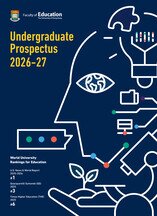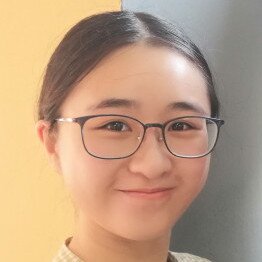Bachelor of Science in Speech-Language Pathology
FAQ
Enquiries Information
Office
1. What are the University entrance requirements and your Faculty entrance requirement?
The University entrance requirements and our programme entrance requirement can be viewed from the HKU website at:
2. Can I apply for direct entry to Year 2, 3 or other year?
There is no direct entry to Year 2, 3 or other year for the BSc(SLP) programme.
3. I am a current student of a bachelor’s degree programme at another university. Can I apply for a transfer?
Candidates studying bachelor's degree programmes overseas may apply through the Non-JUPAS and indicate in the application their preference for credit transfer and / or direct entry. Request for credit transfer will be considered by the Faculty after you have been admitted to the University.
4. I am a JUPAS applicant. Do I need to put the Programme in Band A choice?
Yes, only applicants who have put HKU BSc(SLP) Programme as their 'Band A' choice and have satisfied the Programme Entrance Requirements would be considered for interview.
5. How many places are available?
No. of first year places: 48
6. Is there any quota for non-JUPAS applicants? How many students were admitted through the non-JUPAS exercise?
The number of places is not pre-determined, it will depend on the quality of JUPAS and non-JUPAS applicants.
7. Do you interview students for admission?
There will be interviews for JUPAS and non-JUPAS applicants. We will notify shortlisted candidates the arrangement for the interview by e-mail or phone. Being invited to an interview is not an indicator of the chance of admission, however, admission is based upon academic merit and interview performance.
*Only applicants who have put BSc(SLP) as their Band A choice would be shortlisted and invited for interview.
^Only applicants who have put BSc(SLP) as their first choice programme would be shortlisted and invited for interview.
8. How will the interview be conducted? Will interviewers ask questions I can prepare for?
The interview provides an opportunity for the admission panel to meet you and find out about your personal qualities and interest in the programme. You will have the chance to meet lecturers and learn more about the programme.
Applicants will be asked a wide range of questions. It is important to be yourself, so preparation of short speeches is discouraged.
9. Will the BSC(SLP) accept the best results in the same subject in two or more sittings of HKDSE? And, will there be any penalty imposed on HKDSE repeaters?
The best results in the same subject in two or more sittings of HKDSE will be considered. Also, there will not be any penalty imposed on HKDSE repeaters.
10. What is the expected admission score?
The admission scores can be viewed at HKU website at:
https://admissions.hku.hk/sites/default/files/2025-01/HKU-JUPAS-Expected-Score-2025.pdf
11. What is the application deadline?
Please refer to the following websites for important dates for admission:
JUPAS:
Non-JUPAS:
https://admissions.hku.hk/apply/international-qualifications
12. What are the composition (tuition) fees and will there be any financial assistance?
Please refer to the HKU website at:
13. What are the career prospects of the BSC(SLP) programme?
Graduates are eligible to apply to be "Speech Therapist in Accredited Register" and are qualified to practise as registered speech-language pathologists in Hong Kong. The degree is equivalent in content to similar courses in Australia and New Zealand. Graduates are also highly suitable for post-graduate studies in this or allied disciplines.
Speech-language pathologists assess and treat individuals with a wide range of speech and language disorders, swallowing disorders and other communication difficulties. Speech-language pathologists work with individuals of all ages and may work in hospitals, schools, pre-school centers and private clinics.
14. What are the programme features? What is the medium of instruction?
The curriculum employs a student-centered, translational learning approach. The programme covers the knowledge, skills and attitudes necessary for becoming an effective, professional speech-language pathologist. The medium of classwork is English with a strong emphasis on active participation, problem-solving and presentations in small discussion groups. In the final year, all students are required to complete a research project. During the course, students are required to complete over 300 hours of supervised clinical practicum. The clinical programme is conducted predominantly in Cantonese. This programme therefore offers students a unique bilingual education and training. A strong emphasis is placed on studentsʼ ability to integrate theory and clinical practice, and on their development of the necessary interpersonal and basic research skills.




